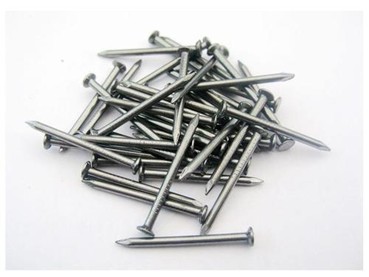Introduction
In construction and woodworking, fasteners often go unnoticed, yet they are the foundation of every stable structure. Among these, wire nails stand out as one of the most commonly used and reliable options. Their strength, affordability, and wide range of applications make them an essential component in industries and households alike. Whether it’s building a wooden frame, repairing furniture, or assembling crates, wire nails continue to prove their relevance in both large-scale and small-scale projects.
What Exactly Are Wire Nails?
Wire nails are cylindrical fasteners produced from drawn steel wire, which gives them uniform thickness and durability. Their simple structure—a flat head, smooth or textured shank, and pointed end—makes them easy to drive into wood or other materials with a hammer or nail gun. While simple in design, their functionality is unmatched. They are available in different lengths and thicknesses, catering to diverse requirements from heavy-duty construction to delicate furniture crafting.
Everyday Uses of Wire Nails
One of the main reasons wire nails have retained their popularity over time is their versatility. They are found in nearly every aspect of construction and household repair. Builders rely on them for framing and securing wooden beams, while carpenters use them for crafting furniture and cabinetry. Even in everyday situations, such as hanging a picture frame or fixing a shelf, wire nails remain the go-to choice because they are affordable, easy to use, and widely available. Their consistent performance makes them equally valuable for both professionals and DIY enthusiasts.
Advantages That Make Them Essential
The advantages of wire nails go beyond affordability. Their durability ensures long-term stability, while their availability in different sizes allows users to pick the right type for their task. Wire nails can be driven quickly, which saves time on large construction sites. Unlike other fastening solutions that may require special tools, these nails can be applied with nothing more than a basic hammer. They also adapt well to various environments, and coated versions provide resistance to rust, making them reliable even in outdoor projects.
Types of Wire Nails
Although they all serve the purpose of fastening, not all wire nails are the same. Different projects call for different variations, and manufacturers have designed several types to meet these needs. Common wire nails, for instance, are heavier and suitable for large construction tasks, while finishing nails are designed with smaller heads that can blend into wood surfaces without affecting appearance. Concrete wire nails are specially hardened to pierce tougher materials like masonry, and box nails, with their thinner shanks, are ideal for light woodwork and packaging tasks. This variety ensures that there is always a nail tailored to the specific requirements of a project.
The Manufacturing Process
· Production starts with steel wire drawn into the required thickness.
· The wire is cut into uniform pieces for consistency.
· Machines shape the head and point of each nail.
· Nails are polished or galvanised to prevent rust and enhance durability.
· The result is fasteners that are reliable, consistent in shape, and long-lasting.
Why They Still Matter in Modern Projects
With the rise of advanced fastening technologies such as screws, adhesives, and mechanical fasteners, one might assume that nails are becoming obsolete. However, wire nails continue to play a significant role in modern projects because of their simplicity and efficiency. They are faster to apply than screws, cheaper than many alternatives, and strong enough for most construction and household needs. Their continued relevance highlights that, even in an age of innovation, some traditional tools still offer unmatched practicality.
Conclusion
Wire nails may be small in size, but their impact in construction, woodworking, and everyday applications is enormous. They are one of the simplest yet most dependable tools that have stood the test of time. Their combination of strength, affordability, and accessibility ensures they remain relevant across industries. From building homes to carrying out quick repairs, wire nails continue to demonstrate that even the most basic tools can play an essential role in modern life.




Add Comment